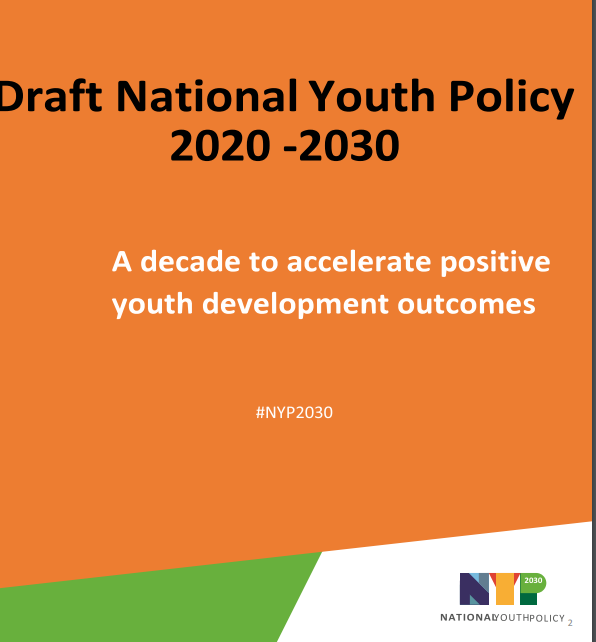South Africa's Department of Women, Youth and Persons with Disabilities has published a new draft national youth policy aimed at promoting young South Africans over the next decade.
The policy document notes that young South Africans have been particularly hard hit by the coronavirus pandemic due to the future uncertainty it has caused, and economic opportunities which have potentially been lost.

“The truth is, even though our youth were already marginalised even prior to the pandemic, their situation has now further been worsened and made complicated,” the department said.
Some of the key concerns which were raised include:
- Their education got disrupted;
- They became socially isolated, anxious and depressed due to lockdown restrictions;
- The high prevalence of gender based violence and femicide increased;
- Poor unhealthy eating habits due to stress; there was generally lack of access to sexual health and reproductive services;
- Those who were looking for jobs could no longer do so and were thus further locked out of the economy;
- Youth-owned businesses suffered loss of income/ employment which threatened young people’s livelihoods.
To address these problems as well as other systemic issues facing the country’s youth, the policy document proposes a number of key economic interventions.
This includes the introduction of a new basic income grant aimed specifically at the country’s unemployed youth.
“Young people’s efforts to enter the labour market should be supported and young discouraged job-seekers rates should be reduced through responsive HR interventions, social assistance and incentives,” the department said.
“An incentive similar to the Covid-19 Social Relief of Distress grant should be implemented to support youth to transition into employment or entrepreneurship.
“The Department of Labour and Employment, working with business, should come up with proposals to protect jobs that are vulnerable due to the 4IR”
Other economic proposals included in the draft document are:
- Data prices must fall in South Africa, and infrastructure should be expanded to bridge the rural-urban divide in terms of access to virtual opportunities. All youth should be able to access WiFi next to their homes;
- The requirement for experience for entry-level jobs should be abolished and implementation monitored to enable youth to enter the labour market;
- Youth employment and entrepreneurship needs to be elevated as a key priority with deliberate minimal public employment and procurement youth set-asides at national, provincial and local government levels;
- Monitor implementation of labour laws, which state that South Africans should be given preference for job opportunities;
- Gradually increase youth participation in Expanded Public Works Programme and the Community Works Programme to above 50%;
- The private sector must be mobilised to complement government’s funding in support of land acquisition primarily for agricultural purposes;
- All economic sectors and industries must do more to improve participation of black people, youth and women, and to support youth-owned businesses through procurement and enterprise development;
- A proposal to relax taxes for youth start-ups should be explored as an avenue to improve their sustainability;










